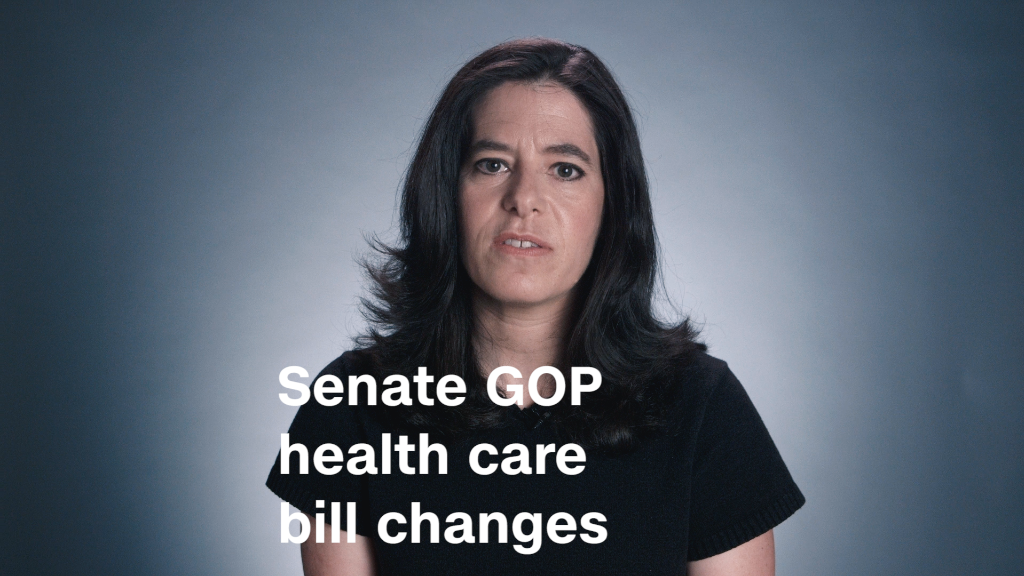
Expectations were turned on their head when Senate Republicans revised their health care bill and did not include the repeal of two key taxes targeting the rich.
Those taxes -- a 0.9% Medicare payroll surtax on salaries over $200,000 and a 3.8% net investment tax on high-income households -- were originally created to help fund insurance subsidies under Obamacare.
Earlier versions of the Senate bill called for their eventual repeal, as did the House bill that passed in May.
But it became clear that more money would be needed to help lower premiums and deductibles, especially for lower income and older Americans, to make the Senate bill more palatable to critics.
Getting rid of the two taxes would have reduced revenue by $231 billion over a decade, according to estimates from the Congressional Budget Office and Joint Committee on Taxation.
In theory, Republicans could still opt to repeal those taxes when they embark on tax reform -- a key goal of theirs is to cut taxes and spur growth.
But that's unlikely to happen.
Related: What's inside the Senate Republican health care bill
For starters, House Speaker Paul Ryan signaled it wouldn't a few weeks ago, when asked what would happen if lawmakers can't seal the deal on repealing Obamacare. In that scenario, he told CNBC, the tax provisions "will have to be gotten to when we get to health care reform."
And even if a lot of Republicans push to include a repeal of the wage and investment surtaxes in a tax reform bill, it'll probably be a pretty hard sell.
"From a revenue and distributional perspective, it would be problematic," said Kyle Pomerleau, federal projects director at the Tax Foundation.
For one thing, tacking on the repeal of those two tax provisions would undermine the source of funding Republicans have now promised to use to make their proposed health system more affordable.
For another, the long wish list Republicans have for tax reform is already estimated to cost trillions -- which will be hard enough to offset even in part.
What's more, analyses of tax proposals from both President Trump and House Republicans have found that they could disproportionately favor the very rich.
As a result, Pomerleau said, "Those taxes are likely to remain. Tax reform is already hard enough."
-- CNNMoney's Tami Luhby contributed to this story


